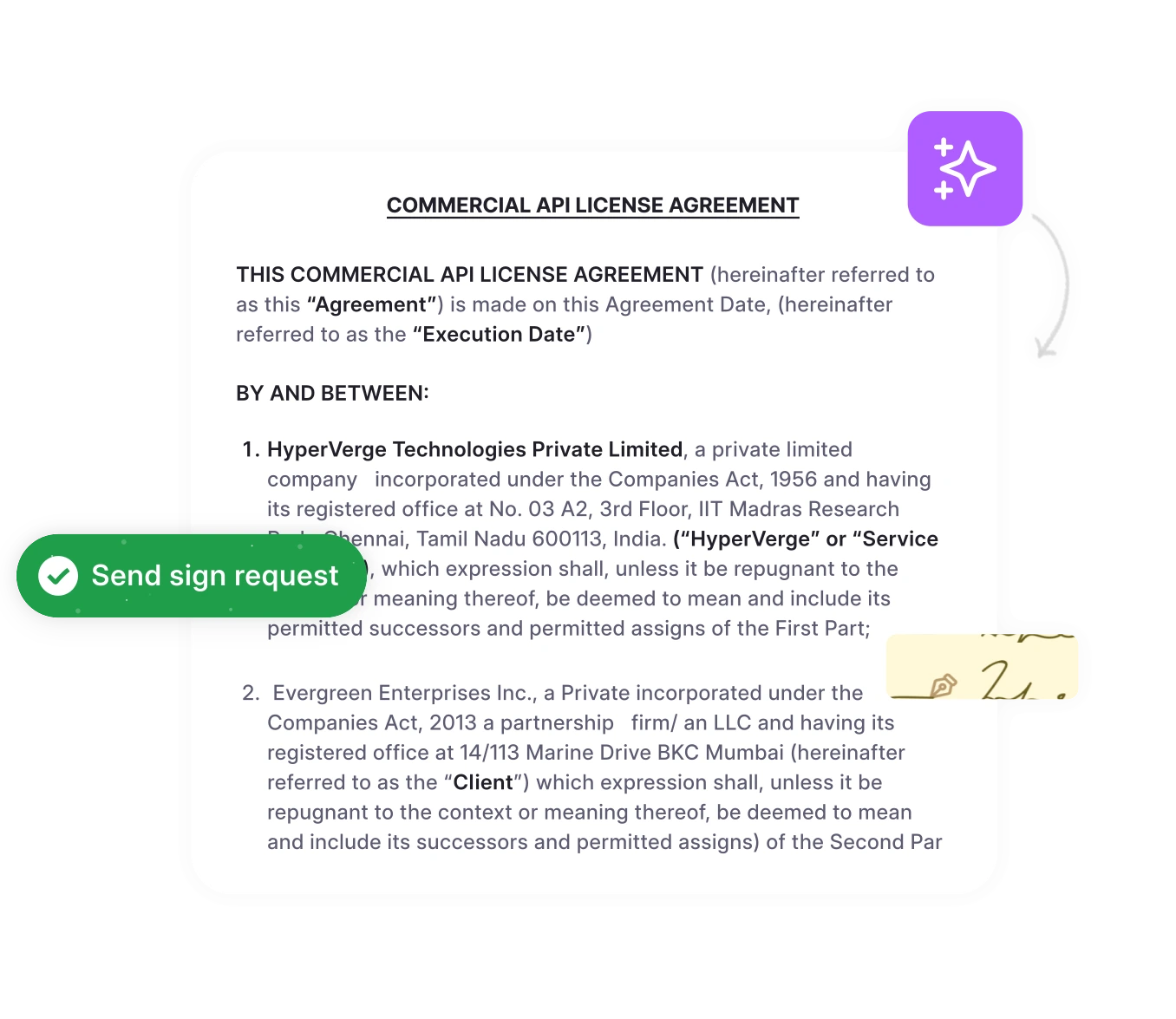Contracts touch almost every part of a business. Without them, business, as usual, does not progress. Money cannot be made; money cannot be spent, at least legally. To understand the purpose of contracts in your organization, as a contract administrator, you’ve got to examine:
The flow of contracts
Who is handling them?
Which stakeholders do they affect?
Which companies handle them in large volumes?
And what happens without contracting excellence?
Contracting capabilities in-house are often designed depending on your organization’s commitment to process quality, the quality of tools and systems, and the attitude toward risk and opportunity. They further influence your role, growth, and career trajectory.
What sets a good contract manager apart?
Organizations that are leaders in contract management tend to churn out great contract administrators. Top performers are laser-focused on accelerating business. Among the metrics to keep track of are deal closure times, speed of change management, and quick issue resolution. Research has it that the best performers are:
5 times more likely to analyze the frequency and source of claims and disputes
4 times more likely to monitor the frequency and nature of changes as well as the cycle times to manage changes and disputes
2 times more likely to monitor cycle times for key process phases and the frequency of critical clause/term negotiations
Simply put, the best contract admins have crucial data in their arsenal to simplify, adapt, and systematize the contract lifecycle end-to-end.
Fact: Not all contract administrators have to be attorneys. In sales-led organizations, the role of the contract administrator is to ensure that sales and legal teams are empowered to create, manage, track, and agree contracts faster. They function like revenue officers who are familiar with legal terms.
In other organizations, contract administrators may be required to hold law degrees. They liaise between the legal departments and other functions like sales, procurement, finance, and HR.
What does a contract manager do?
The role is a concoction of both strategic and tactical work that pushes for greater clarity, oversight, and impact of the contracting process. They ensure that agreements are moved seamlessly from creation through collaboration and negotiation to signature while staying in contact with the right stakeholders.
With the emergence of AI-powered contract management software, technology can address complex aspects of contracting to create financial impact, identify opportunities for added value, and nurture business relationships. More specifically, it simplifies:
Change management
Whatever gets measured gets done. Each of the following roles in the contracting lifecycle is best carried out with advanced analytics that offer early warnings for proactive decision-making.
1. Architect agreements
Role: Well-written contracts tend to act as roadmaps that set clear expectations for all parties. For contract administrators, this involves creating legal-approved, standardized, and automated templates that the team can rinse and repeat with high accuracy and consistency.
KPIs: Speed of contract creation and turnaround times
2. Scrutinize terms
Role: Contracts are complex, dynamic documents with both legal nuances and latent clauses. Contract administrators are required to meticulously scrutinize terms, spot risks, and get them internally reviewed by the right stakeholders. Research has it that the initial contract review can take an average of 92 minutes, while an AI engine can do that in 26 seconds.
KPIs: Speed of approvals
3. Negotiate
Role: In this phase of the contract lifecycle, parties and counterparties redline and review contracts. It is the legal counsel that usually negotiates contracts; the contract administrator usually aids the process by vetting critical clauses and terms without know-how on case laws or legal arguments. The contract administrator’s role involves taking holistic measures to navigate risks, ensure compliance, and negotiate cost reductions or savings.
KPIs: Number of contracts negotiated, cost saved, page review time
4. Get signatures
Role: Contracts tend to beeline across internal and external stakeholders as contract administrators route them to the right people with conditional access to contract data in a predetermined order. eSignatures are collected, and the executed contract is sent to the relevant parties.
KPIs: Average time taken from bid to signature of contracts
5. Organize meticulously
Role: Nearly half (49%) of organizations admit they’re in the dark when it comes to a defined process for storing contracts after execution. Contracts need to be stored securely post-execution. In addition, past contracts, both legacy and digital, need to be imported into one unified repository. A contract administrator consolidates and organizes contracts for easy retrieval, compliance, and secure role-based access.
KPIs: Contract obligation extraction and monitoring
6. Track diligently
Role: Missing a renewal because you didn’t get a calendar notification can cost your company money. Tracking involves monitoring renewals or expiries with stakeholders, partners, vendors, suppliers, and customers to stay ahead of expensive surprises. The strategic motive here is to hold momentum, cement trust, and ensure smooth operations.
KPIs: Contract obligation tracking
Go from contract chaos to control
Reclaim time, simplify compliance, and put real-time contract intelligence to work as you manage contracts at scale.
Developing excellence in contract management
Contract administrators are usually required to hold a bachelor’s degree in business, pre-law, or human resources. Then they go on to earn relevant work experience in entry-level administrative and related roles. A law school degree is optional, depending on the organization and kind of business you enter. Certifications are best obtained from authorities like the NCMA and IACCM. Some of them include:
Certified Federal Contracts Manager
Certified Commercial Contracts Manager
Certified Professional Contracts Manager
While these are prerequisites that are the bare minimum, excellence at work is a mixture of merit, systems, organizational culture, and intentional career design. A big difference between a leader and a laggard depends on the processes, tools, and systems that enable other KPIs. This requires you to evaluate the size of your business, its global footprint, the industry, and the potential growth trajectory for you.
The following areas of measurement provide insight into why high performers are more successful at delivering value:
1. Better-negotiated terms
Contract administrators need to effectively negotiate terms and conditions with both internal and external stakeholders in the interest of the organization. They extract favorable clauses, secure better pricing, and mitigate risk. They don’t shy away from difficult conversations; they understand the nuances of power dynamics and navigate stakeholder collaboration with ease.
Skills: legal knowledge, negotiation, analytical skills, relationship building
2. Improved revenue or contributions to it
Beyond paper and tech skills, contract administrators have a direct impact on the bottom line. They spot revenue opportunities in contracts, track vendor-supplier performance, and make sure payments happen on time. They proactively manage contract renewals and secure revenue streams while optimizing spending.
Skills: financial analysis, project management, strategic thinking, data analytics
3. Resolution of disputes or claims
Businesses spend $870 billion on dispute resolution every year. Despite best intentions, conflicts over contract clauses tend to happen. Top-performing contract administrators resolve conflict effectively and smoothly. They are natural communicators who can build empathy and trust across parties, protecting the organization’s reputation and financial stability.
Skills: conflict resolution, legal knowledge, empathy & fairness, negotiation
4. Management of cycle times and disputes
40% of contract leakages exist because of poor management. Good contract administrators are sticklers for timely contracting from creation to negotiation to execution. They may even suggest shaving off days and weeks from the contracting lifecycle process for faster business outcomes.
Skills: process optimization, efficiency, data analysis
5. Benchmark performance with other groups or organizations
No high-performer operates in a vacuum. They benchmark performance against industry standards and internal business goals. It is often useful to study past contract data and identify areas for improvement before you draw up best practices in terms of automated systems, agile frameworks, and data analytics.
Skills: research, data analysis, communication, strategic thinking
6. Establish contracting and commercial strategy
While staying abreast of dynamic best practices is great, the positioning of an organization is bound to stay anchored in its purpose. Good contract administrators spearhead the design of this strategy with enduring policy, action, and standard operating procedures.
Skills: business acumen, legal knowledge, visionary thinking, stakeholder engagement
7. Lead change initiatives in policies and practices
Top contract administrators are meticulous observers who evaluate internal procedures and identify areas for improvement. Any change to policies is advocated while aligning legal and commercial objectives, responsiveness, and agility.
Skills: leadership, tech adoption, change management, critical thinking, problem-solving, risk management
8. Pre-bid, identify and gather feedback for market opportunities
Signing a contract can be the start of a lasting relationship. Over time, you would review and renegotiate endless agreements with changing business needs. High-performing managers scour trends for potential partnerships and pre-bid opportunities. They turn the static back-office contracting operation into a strategic revenue engine.
Skills: market research, communication, data analysis
In a nutshell, contract administrators empower organizations to deal with the consequences of uncertainty and change while reinforcing robust contracting practices. From here, your career can further progress into labyrinthine senior roles, industry leadership, higher education, roles in procurement, business development, project management, or even entrepreneurship. It’s up to you!
Contract administrator jobs, salary, and benefits
You can scout for jobs as a contract administrator on LinkedIn and Glassdoor.
The salary depends on the organization, the candidate’s qualifications, location, industry, and negotiation capacity. Contract managers tend to earn competitive salaries. Salary.com reports that their earnings range from $114K to $152K, with an average of $132K.
The benefits include:
Intellectual stimulation
Upskilling
Competitive compensation packages
Cross-industry flexibility
Networking avenues
Increase in bargaining power
International reach
Choose HyperStart to future-proof your career
The contracting world has been ripe for change that improves legal operations. Organizations with lean legal teams but fast-growing companies may not be the best place to find career growth unless there’s a solid business case. Even high-powered legal teams tend to automate solutions while legal takes on more strategic roles.
The right places for you are going to be in organizations that outsource or co-source work with external contributors, like enterprise legal services. Because of the multidisciplinary nature of the role, you’ll find them in industries like IT, healthcare construction, government procurement, and so on. That’s because these organizations tend to consider a mixture of process management, technology transformation, and new sourcing strategies for specific competitive goals. If your career purpose is clear, you can naturally strike a balance between professional expectations and personal incentives.
With HyperStart, you can turn contract chaos into control, use AI to contract smarter, reduce risk, and reclaim revenue.
Stop the grunt work
Automate rote contracting work and focus on the strategic work you were meant to do.
Frequently asked questions
Emerging industries like SaaS and renewable energy also demand contract managers to streamline operations, ensure compliance, and mitigate risks.
AI-powered CLM solutions like HyperStart automate workflows, improve compliance, and enhance tracking to overcome these challenges.
Companies leveraging AI-driven CLM solutions see improved financial performance and reduced risks.
Choosing the right tool depends on contracting needs, compliance requirements, contract volumes and complexity.



![Who is a Contract Manager? [Roles + Skills + Responsibilities]](https://www.hyperstart.com/wp-content/uploads/2025/02/Blog-33-white-scaled.webp)








